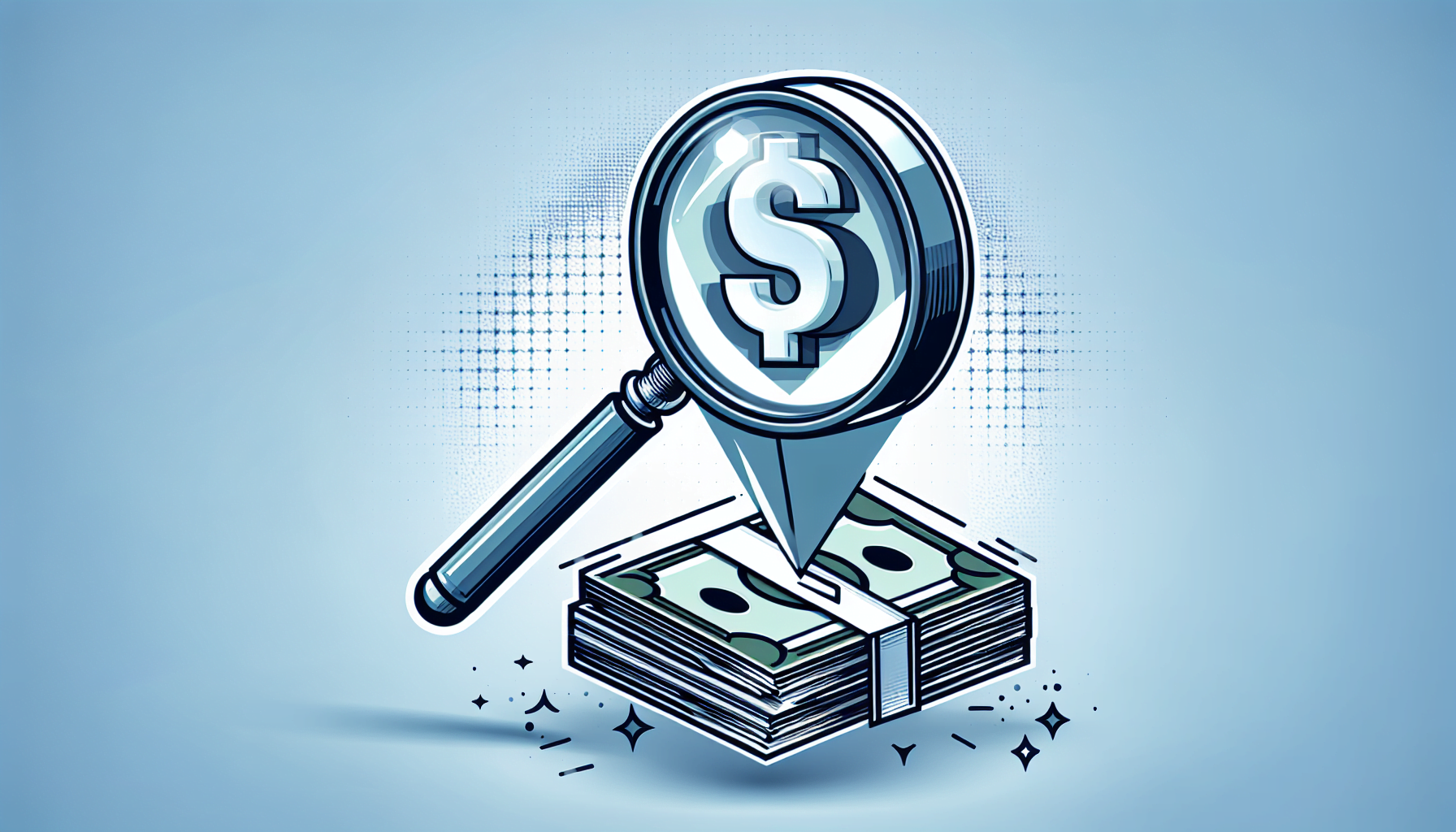You’ve likely heard the buzz surrounding Artificial Intelligence (AI) in B2B Marketing Automation, but do you truly understand its impact? In business-to-business marketing, AI is not just a trend; it’s a game-changer. This powerful technology has revolutionized how companies target, engage, and convert leads, making marketing efforts not only more effective but also more efficient.
By harnessing AI in your marketing automation strategy, you unlock a world of possibilities. From predictive analytics to personalized content recommendations, AI enables marketers to make data-driven decisions, streamline processes, and deliver hyper-targeted campaigns. Despite its undeniable advantages, it’s crucial to tread carefully with AI to ensure data privacy and ethical use. Understanding the role of AI in B2B marketing automation is no longer just an option; it’s a necessity for staying competitive in today’s digital landscape.
Key Takeaways:
- Enhanced Personalization: AI allows B2B marketers to create highly personalized experiences for prospects by analyzing data and predicting behaviors.
- Improved Lead Scoring: AI tools can help in identifying high-quality leads by analyzing patterns and engaging with the most promising prospects.
- Efficient Content Creation: AI algorithms can assist in content creation by analyzing data to understand what resonates with the target audience, resulting in more relevant and engaging content.
- Enhanced Customer Experience: B2B marketers can use AI to provide better customer support by incorporating chatbots and AI assistants, improving overall customer experience.
- Optimized Marketing Strategies: AI in B2B marketing automation helps in optimizing marketing strategies by providing insights into customer behavior, preferences, and trends, resulting in more effective campaigns.
The Basics of AI in B2B Marketing Automation
1. How can AI enhance B2B marketing automation?
2. What are the key benefits of using AI in marketing automation?
3. Can AI improve lead generation in B2B marketing?
4. Explain the role of AI in personalizing marketing campaigns.
5. How does AI optimize customer segmentation in B2B marketing?
Understanding AI and Its Capabilities
1. Define artificial intelligence in the context of marketing automation.
2. How does AI analyze customer behavior in B2B marketing?
3. Explain the concept of predictive analytics in AI for marketing.
4. Describe the role of machine learning in automating marketing tasks.
5. What are the limitations of AI in marketing automation?
For marketers exploring into AI in B2B marketing automation, it’s necessary to understand the foundations of artificial intelligence and its capabilities. AI refers to the simulation of human intelligence processes by machines, enabling them to learn from data, recognize patterns, and make decisions with minimal human intervention. In the context of marketing automation, AI plays a crucial role in analyzing vast amounts of data to predict customer behavior, personalize marketing strategies, automate tasks, and optimize campaign performance.
Core Components of AI in Marketing Automation
1. What are the key components of AI in marketing automation?
2. How does AI-powered analytics impact marketing ROI?
3. Explain the difference between AI and traditional marketing analytics.
4. Can AI enhance customer retention in B2B marketing?
5. How does AI assist in content creation for marketing campaigns?
For marketers implementing AI in their B2B marketing automation strategies, it’s crucial to grasp the core components that drive its effectiveness. AI-powered analytics, machine learning algorithms, natural language processing, predictive analytics, and deep learning are necessary components that fuel AI’s capabilities in automating marketing tasks, improving customer segmentation, enhancing lead generation, and personalizing communication with clients. By harnessing these elements, businesses can streamline their marketing efforts, improve conversion rates, and achieve a competitive edge in the B2B landscape.
A successful integration of AI in B2B marketing automation hinges on a comprehensive understanding of its core components and capabilities. Marketers who leverage AI for customer segmentation, personalized campaigns, and predictive analytics can unlock deeper insights, enhanced efficiency, and improved ROI. However, it’s crucial to acknowledge and address the limitations and ethical considerations associated with AI to ensure responsible and effective implementation in marketing strategies. By embracing AI’s potential while mitigating its risks, businesses can revolutionize their marketing automation efforts and drive sustainable growth in the competitive B2B marketplace.
AI-Driven Lead Generation Strategies
The era of AI in B2B marketing automation has revolutionized lead generation strategies, enabling businesses to optimize their marketing efforts and drive more qualified leads. In this chapter, we research into some of the cutting-edge AI-driven strategies that are transforming the way B2B marketers approach lead generation.
Intelligent Lead Scoring
- How can AI improve lead scoring accuracy?
- What are the benefits of using AI for lead scoring?
- Examples of AI tools for intelligent lead scoring
Strategies: Intelligent lead scoring harnesses the power of AI algorithms to analyze vast amounts of data and predict the likelihood of a lead converting into a customer. By leveraging machine learning and predictive analytics, businesses can prioritize leads based on their propensity to buy, thereby focusing their resources on high-potential prospects. This data-driven approach not only enhances the efficiency of lead qualification but also increases the overall conversion rate.
Predictive Analytics for Lead Identification
- How does predictive analytics aid in lead identification?
- Benefits of using predictive analytics for lead generation
- Top predictive analytics models for lead identification
Scoring: Predictive analytics plays a crucial role in identifying and nurturing potential leads by analyzing historical data patterns and identifying key indicators that signal buying intent. By leveraging advanced machine learning models, businesses can forecast future customer behaviors and tailor their marketing strategies to align with individual prospect preferences, resulting in higher engagement and conversion rates.
Analytics: The integration of predictive analytics into lead generation strategies empowers businesses to make data-driven decisions and optimize their marketing campaigns for maximum ROI. By leveraging AI-driven insights, organizations can enhance lead qualification processes, personalize customer interactions, and ultimately accelerate the sales cycle. However, it is crucial to ensure data accuracy and privacy compliance when implementing predictive analytics solutions to mitigate risks and uphold customer trust.
Personalization and AI in B2B Marketing
1. How can AI enhance personalization in B2B marketing?
2. What are the benefits of utilizing AI for personalization in B2B marketing?
3. Examples of AI-powered personalization strategies in B2B marketing.
4. Best practices for leveraging AI in personalization for B2B marketing.
Dynamic Content Customization
1. How can AI be used to customize content dynamically in B2B marketing?
2. Examples of dynamic content personalization using AI for B2B audiences.
3. Strategies for implementing AI-driven dynamic content customization in B2B marketing.
Any B2B marketing strategy aiming for effective personalization must consider the power of dynamic content customization. By leveraging artificial intelligence, businesses can tailor their content dynamically based on user behavior, preferences, and demographics. This allows for a more personalized and engaging experience for B2B customers, ultimately leading to better conversion rates and customer satisfaction. Implementing AI-driven dynamic content customization requires a strategic approach that combines data analytics, machine learning algorithms, and real-time content delivery to ensure the right message reaches the right audience at the right time.
Account-Based Marketing (ABM) Enhancements
1. How can AI enhance account-based marketing strategies in B2B?
2. Examples of AI-powered account-based marketing campaigns in B2B.
3. Best practices for integrating AI into account-based marketing for B2B organizations.
Marketing automation platforms equipped with AI have revolutionized account-based marketing (ABM) strategies in the B2B sector. By leveraging AI algorithms for predictive analytics, lead scoring, and personalized messaging, businesses can significantly enhance their ABM efforts. AI enables marketers to identify high-value accounts, deliver targeted content, and engage with key decision-makers in a more efficient and personalized manner. As a result, B2B organizations can improve their ROI, increase customer retention, and drive revenue growth through highly targeted ABM campaigns.
Marketing automation platforms with AI capabilities have transformed the landscape of B2B marketing, empowering businesses to deliver highly personalized and targeted campaigns at scale. By harnessing the power of AI for dynamic content customization and ABM enhancements, organizations can deepen their engagement with prospects, optimize their marketing strategies, and drive better results in the competitive B2B marketplace.

Streamlining Operations with AI
Now, as businesses strive to stay competitive in the digital age, AI has emerged as a powerful tool for streamlining operations in B2B marketing automation. By leveraging AI technology, companies can optimize their processes, improve efficiency, and deliver personalized experiences to their customers at scale. One of the key benefits of using AI in B2B marketing automation is its ability to automate repetitive tasks, freeing up valuable time for marketers to focus on strategic initiatives and creativity.
1. How can AI optimize lead scoring in B2B marketing automation?
2. What role does AI play in predictive analytics for B2B marketing?
3. Can AI help in personalizing content for B2B marketing campaigns?
4. Examples of successful AI implementations in B2B marketing automation.
5. Best practices for integrating AI into B2B marketing automation platforms.
Automation in Email Marketing Campaigns
On the forefront of revolutionizing B2B marketing automation are AI-driven solutions that enhance email marketing campaigns. Automated tools powered by AI can segment audiences, personalize content, optimize send times, and analyze performance metrics with precision. This level of automation not only saves time but also increases the effectiveness of email marketing efforts, leading to higher engagement and conversion rates.
1. How can AI improve email open rates in B2B marketing?
2. What are the benefits of AI-driven A/B testing in email marketing?
3. Ways AI can help in creating dynamic content for email campaigns.
4. Examples of AI tools that streamline email marketing operations.
5. Best practices for implementing AI in email marketing automation.
Chatbots and Conversational AI for Customer Engagement
On the customer engagement front, chatbots and conversational AI have become indispensable tools for B2B marketers. These technologies enable businesses to provide instant support, qualify leads, and deliver personalized interactions round the clock. By leveraging chatbots and conversational AI, B2B companies can enhance customer experience, increase customer satisfaction, and drive conversions effectively in today’s digital landscape.
1. How can chatbots improve customer service in B2B organizations?
2. What role does conversational AI play in lead nurturing for B2B companies?
3. Ways to personalize customer interactions using chatbots in B2B marketing.
4. Examples of successful chatbot implementations in B2B customer engagement.
5. Best practices for integrating chatbots into B2B marketing strategies.
Customer engagement is a critical aspect of B2B marketing, and chatbots and conversational AI offer a scalable solution to cater to the diverse needs of customers. These technologies can handle routine inquiries, provide immediate assistance, and even offer preliminary support in complex queries. By utilizing chatbots and conversational AI strategically, businesses can create seamless and personalized experiences for their customers, fostering long-term relationships and driving business growth.
1. How can chatbots be customized to suit specific industries in B2B marketing?
2. What are the key metrics to measure the effectiveness of chatbots in customer engagement?
3. Examples of chatbots transforming the customer service landscape in B2B organizations.
4. Strategies for optimizing chatbot interactions for maximum customer satisfaction.
5. The future of chatbots and conversational AI in B2B customer engagement.
Understanding the capabilities of AI in streamlining operations in B2B marketing automation is crucial for businesses looking to stay ahead of the curve. Leveraging AI technologies enables companies to automate tasks, improve efficiency, and deliver personalized experiences at scale. However, it is important to tread carefully and consider the ethical implications and privacy concerns associated with AI implementation in marketing strategies. By staying informed and adopting best practices, businesses can harness the power of AI to drive growth and success in the competitive B2B landscape.
AI in B2B Marketing Analytics
Many B2B marketers are turning to AI to enhance their marketing analytics capabilities. AI-powered tools can analyze vast amounts of data to uncover valuable insights that can drive strategic decision-making and improve overall marketing performance. By leveraging AI in marketing analytics, businesses can gain a deeper understanding of customer behavior, identify trends, and optimize their marketing strategies for better results.
- Generate customer segmentation analysis
- Predict customer lifetime value
- Identify high-value leads
- Analyze marketing campaign performance
Advanced Data Analysis Techniques
The use of AI in B2B marketing analytics enables marketers to employ advanced data analysis techniques to extract meaningful insights from large datasets. With AI algorithms, marketers can uncover complex patterns, correlations, and trends that may not be apparent through traditional analytics methods. Some of the advanced techniques include predictive analytics, machine learning, natural language processing, and sentiment analysis.
- Predictive lead scoring models
- Customer sentiment analysis
- Market basket analysis for product recommendations
- Customer churn prediction
- Key Benefits
- Improved targeting and personalization
- Enhanced decision-making based on data-driven insights
- Increased ROI on marketing campaigns
- Identifying new opportunities for business growth
Real-time Reporting and Decision-making
The integration of AI in B2B marketing analytics enables real-time reporting and decision-making, allowing marketers to access up-to-date data and insights instantaneously. Real-time analytics can provide valuable information on campaign performance, customer interactions, and market trends as they unfold, empowering marketers to make informed decisions quickly and adapt their strategies in real time for maximum impact.
- Monitor campaign performance in real time
- Identify and capitalize on emerging trends
- Adjust marketing strategies on the fly
- Personalize customer interactions in real time
One necessary aspect of real-time reporting and decision-making is the ability to respond promptly to changes in the market or customer behavior. By leveraging AI technologies for real-time analytics, marketers can gain a competitive edge by staying agile and making data-driven decisions swiftly to capitalize on opportunities and mitigate risks.
With real-time reporting and decision-making, B2B marketers can stay ahead of the curve and adapt to changing market dynamics quickly. By leveraging AI-powered analytics tools, businesses can identify opportunities in real time, optimize their marketing efforts on the fly, and personalize their interactions with customers based on the most current data available. This level of agility and responsiveness can significantly improve marketing outcomes and drive business growth.

The Ethics and Privacy Implications of AI in B2B Marketing
- What are the ethical implications of using AI in B2B marketing?
- How can AI in marketing impact consumer privacy?
- Are there any regulations governing AI use in marketing?
- Discuss the balance between personalization and privacy in AI marketing.
Data Security Concerns
- How can businesses ensure data security when implementing AI in marketing?
- What are the risks associated with storing customer data for AI analysis?
- How do data breaches impact trust between businesses and customers?
- Discuss the importance of data encryption in protecting customer information.
Privacy: The rise of AI in B2B marketing brings about significant privacy concerns as businesses collect and analyze vast amounts of customer data to personalize marketing campaigns. With this increased data collection comes the responsibility to safeguard this information from potential breaches and misuse.
Ethical Considerations in Automated Marketing
- What ethical issues can arise from using AI to automate marketing processes?
- How can businesses ensure transparency and fairness in automated marketing?
- Are there any implications of AI in marketing that may lead to discriminatory practices?
- Discuss the importance of obtaining consent from customers for data usage in automated marketing.
Marketing: In automated marketing, ethical considerations play a crucial role in ensuring that businesses maintain trust and credibility with their audience. While AI can streamline processes and drive efficiency, it is vital for businesses to uphold ethical standards in their marketing practices to avoid potential controversies or backlash.
Automated: When delving into AI in B2B marketing, it is crucial to highlight the significance of data security concerns. Implementing robust security measures is imperative to prevent data breaches that can compromise customer trust and business reputation. While AI presents opportunities for personalized marketing strategies, businesses must prioritize data encryption and protection to uphold customer privacy.
Integrating AI into Existing B2B Marketing Strategies
Seamless AI Integration with Current Tools
- How can AI be integrated into current marketing automation platforms?
- What are the benefits of integrating AI into existing B2B marketing tools?
- Which AI tools work best with CRM systems for seamless integration?
Not implementing AI in isolation but integrating it seamlessly into your current B2B marketing tools is crucial for maximizing its benefits. When adding AI to your existing marketing strategies, it’s vital to consider compatibility with your current systems and tools. Look for AI solutions that can easily integrate with your customer relationship management (CRM) software, email marketing automation platforms, and other key tools you currently use for marketing campaigns.
Incorporating AI into your existing B2B marketing stack can enhance personalization, improve lead scoring accuracy, streamline data analysis, and automate routine tasks. By leveraging AI tools that work well with popular CRM systems like Salesforce or HubSpot, you can create a more efficient and data-driven marketing operation.
Change Management and Training for Marketing Teams
- How can marketing teams adapt to the changes brought by AI integration?
- What training programs are vital for marketing teams to optimize AI tools?
- How can change management strategies support the integration of AI in marketing operations?
Current changes necessitate adapting to new technologies like AI in B2B marketing. Providing adequate training and support for marketing teams as they integrate AI tools into their workflows is crucial for successful adoption. Change management strategies play a pivotal role in ensuring a smooth transition by aligning teams with new processes and technologies, mitigating resistance, and fostering a culture of innovation.
An investment in training programs focused on AI tools and data analytics is vital to equip marketing teams with the knowledge and skills needed for effective utilization. By empowering teams with the right training, resources, and support, organizations can unlock the full potential of AI in optimizing marketing strategies and driving business growth.
With careful planning and training, integrating AI seamlessly into current B2B marketing strategies can revolutionize marketing operations. By strategically aligning AI tools with existing platforms and providing adequate training and support, organizations can unlock new levels of efficiency, personalization, and data-driven decision-making in their marketing efforts.
Future Trends and Predictions in AI for B2B Marketing
All Emerging Technologies in AI
1. Explain how AI is transforming B2B marketing strategies.
2. Explore the role of machine learning in B2B marketing automation.
3. Discuss the impact of natural language processing on personalized marketing campaigns.
4. Predict the future of AI-driven content creation in B2B marketing.
5. Analyze the potential of AI in optimizing B2B lead generation processes.
Emerging Technologies in AI
To stay ahead in the B2B marketing landscape, it’s crucial to keep up with the emerging technologies in AI. Machine learning algorithms are becoming increasingly sophisticated, enabling marketers to analyze vast amounts of data and uncover valuable insights. Natural language processing (NLP) is also revolutionizing how businesses engage with their customers by enabling personalized interactions at scale. Furthermore, AI-driven content creation tools are empowering marketers to develop relevant and engaging content more efficiently than ever before. As these technologies continue to evolve, businesses that embrace AI in their marketing strategies will have a significant competitive advantage in the B2B space.
1. Discuss the role of AI in enhancing customer experience in B2B marketing.
2. Predict the impact of AI on account-based marketing strategies.
3. Explore the future of AI-powered predictive analytics in B2B marketing.
4. Analyze the potential of AI-powered chatbots in B2B lead generation.
5. Evaluate the challenges and opportunities of implementing AI in B2B marketing strategies.
Predictive Scenarios for B2B Marketing Innovations
Marketing Predictive Scenarios for B2B Marketing Innovations
In B2B marketing, predictive analytics fueled by AI has the potential to revolutionize how businesses target and engage with their customers. By leveraging AI-powered insights, marketers can predict customer behavior, personalize marketing campaigns, and optimize lead generation efforts. Chatbots integrated with AI capabilities can provide real-time customer support, qualify leads, and enhance overall customer experience. While implementing AI in B2B marketing poses challenges such as data privacy concerns and the need for skilled professionals, the opportunities for increased efficiency and effectiveness in marketing strategies are vast.
1. Explain the significance of AI in shaping the future of B2B marketing automation.
2. Predict how AI will impact the sales funnel in B2B marketing.
3. Analyze the role of AI in personalized account-based marketing strategies.
4. Explore the challenges of adopting AI in B2B marketing and how to overcome them.
5. Discuss ethical considerations in using AI for B2B marketing purposes.
Summing up
Drawing together the various applications and benefits of AI in B2B marketing automation, it is clear that this technology plays a crucial role in optimizing processes, improving personalization, and driving better outcomes for businesses. From lead scoring and segmentation to content customization and predictive analytics, AI empowers marketing teams to make data-driven decisions and deliver targeted, relevant campaigns to their audience.
As AI continues to evolve and businesses embrace its capabilities, the future of B2B marketing automation looks promising. By leveraging AI-driven tools and algorithms, companies can stay ahead of the competition, engage customers more effectively, and ultimately drive revenue growth. As such, understanding and incorporating AI into B2B marketing strategies will be imperative for organizations looking to thrive in the digital age.
FAQ
Q: What is B2B Marketing Automation?
A: B2B Marketing Automation refers to the use of software platforms and technologies to automate repetitive marketing tasks and processes in business-to-business marketing, with the goal of increasing efficiency and driving revenue.
Q: How does AI enhance B2B Marketing Automation?
A: Artificial Intelligence (AI) enhances B2B Marketing Automation by enabling advanced data analysis, personalized targeting, predictive analytics, and intelligent automation of marketing activities to deliver more targeted and effective campaigns.
Q: What are the key benefits of using AI in B2B Marketing Automation?
A: The key benefits of using AI in B2B Marketing Automation include improved lead generation, enhanced personalization, increased efficiency, better ROI, and the ability to scale marketing campaigns effectively.
Q: What are some common use cases of AI in B2B Marketing Automation?
A: Common use cases of AI in B2B Marketing Automation include lead scoring and segmentation, content personalization, predictive analytics for customer behavior, dynamic pricing optimization, and automated email marketing campaigns.
Q: How can businesses get started with AI in B2B Marketing Automation?
A: Businesses can get started with AI in B2B Marketing Automation by first identifying their marketing goals and challenges, then selecting the right AI-powered tools and platforms, setting up data integration, running pilot campaigns, and continuously optimizing their strategies based on performance metrics.















